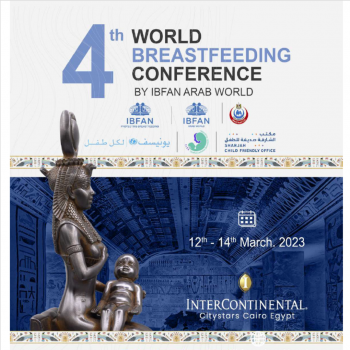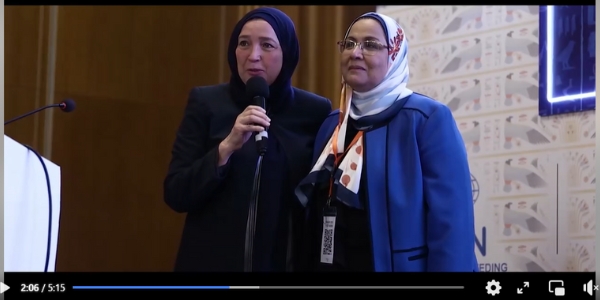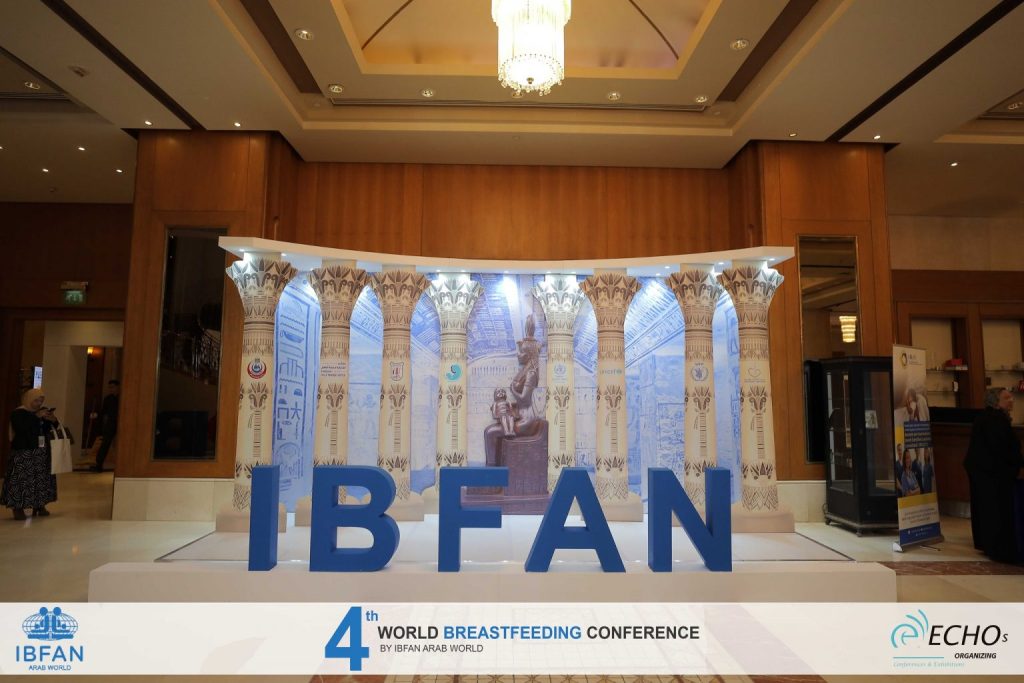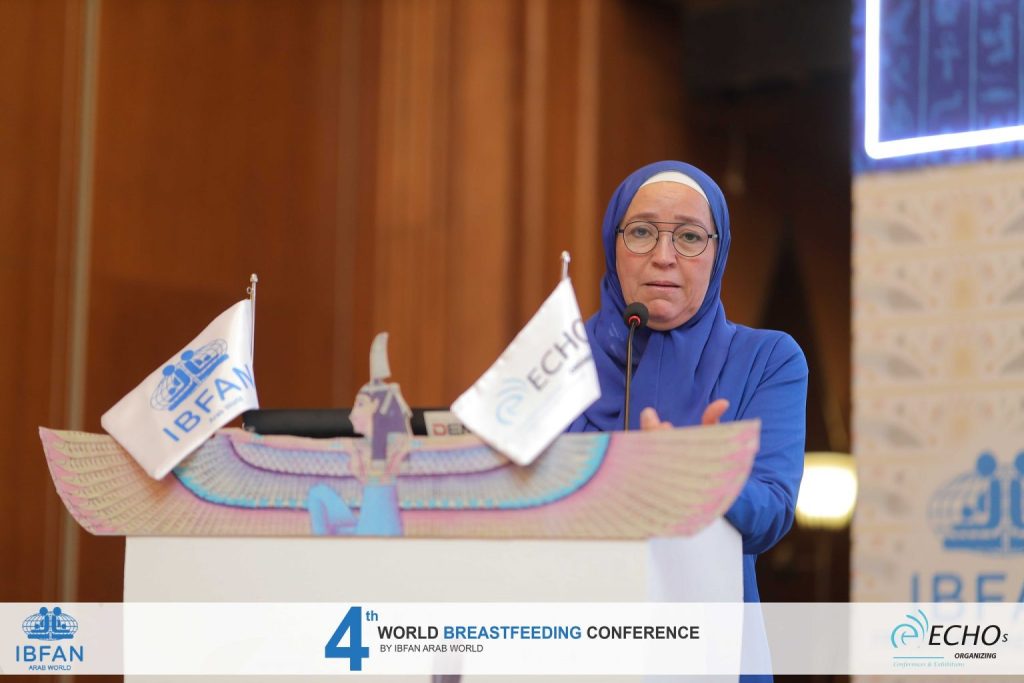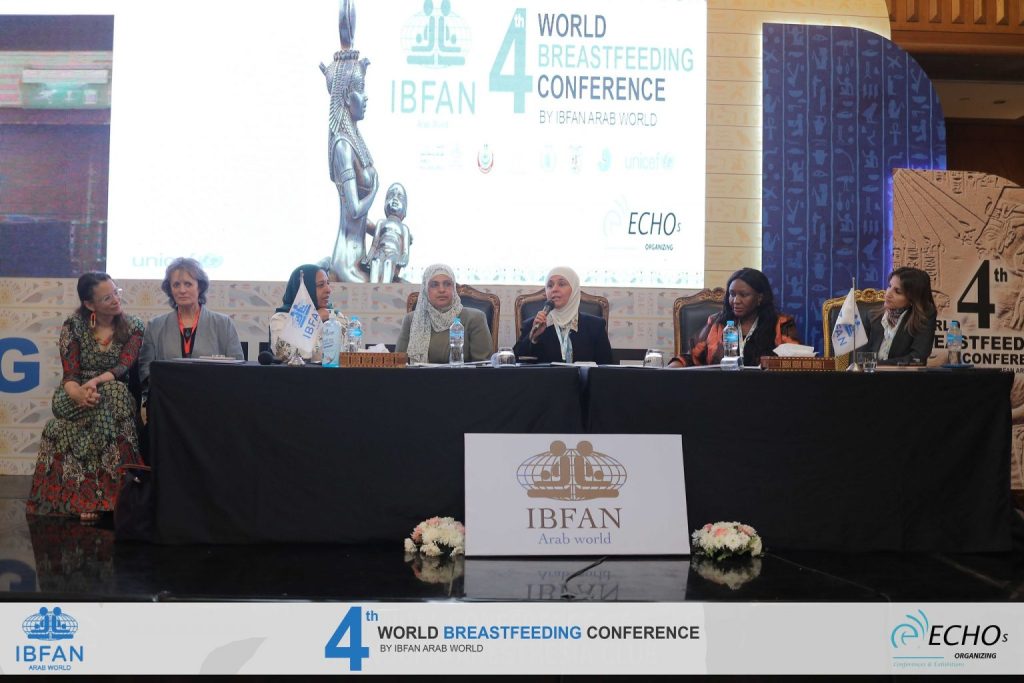Dear Colleagues:
On behalf of the International Baby Food Action Network (IBFAN), we are pleased to announce that the Fourth World Breastfeeding Conference (WBC 4), organized by IBFAN Arab World (IAW), took place successfully from March 12th to 14th, 2023, at the InterContinental Citystars Hotel in the beautiful city of Cairo, Egypt.
Despite the ongoing efforts of governments, NGOs, and breastfeeding advocates to protect, promote, and support breastfeeding, breastfeeding rates are not increasing in many parts of the world.
During the event, we discussed the challenges faced and proposed solutions to address this global issue. Since the global pandemic of the coronavirus disease in 2019, formula companies have employed unacceptably widespread, misleading, and predatory marketing tactics as a means to increase their profits and, consequently, discourage mothers from breastfeeding exclusively.
Throughout the conference, strategies to combat these unethical practices were discussed, including the enactment, monitoring, and enforcement of laws to end all promotion of formula milk products, ensuring that mothers have the knowledge, competence, and skills necessary to provide their babies with the best start in life.
We are grateful to all those who participated in the Fourth World Breastfeeding Conference.
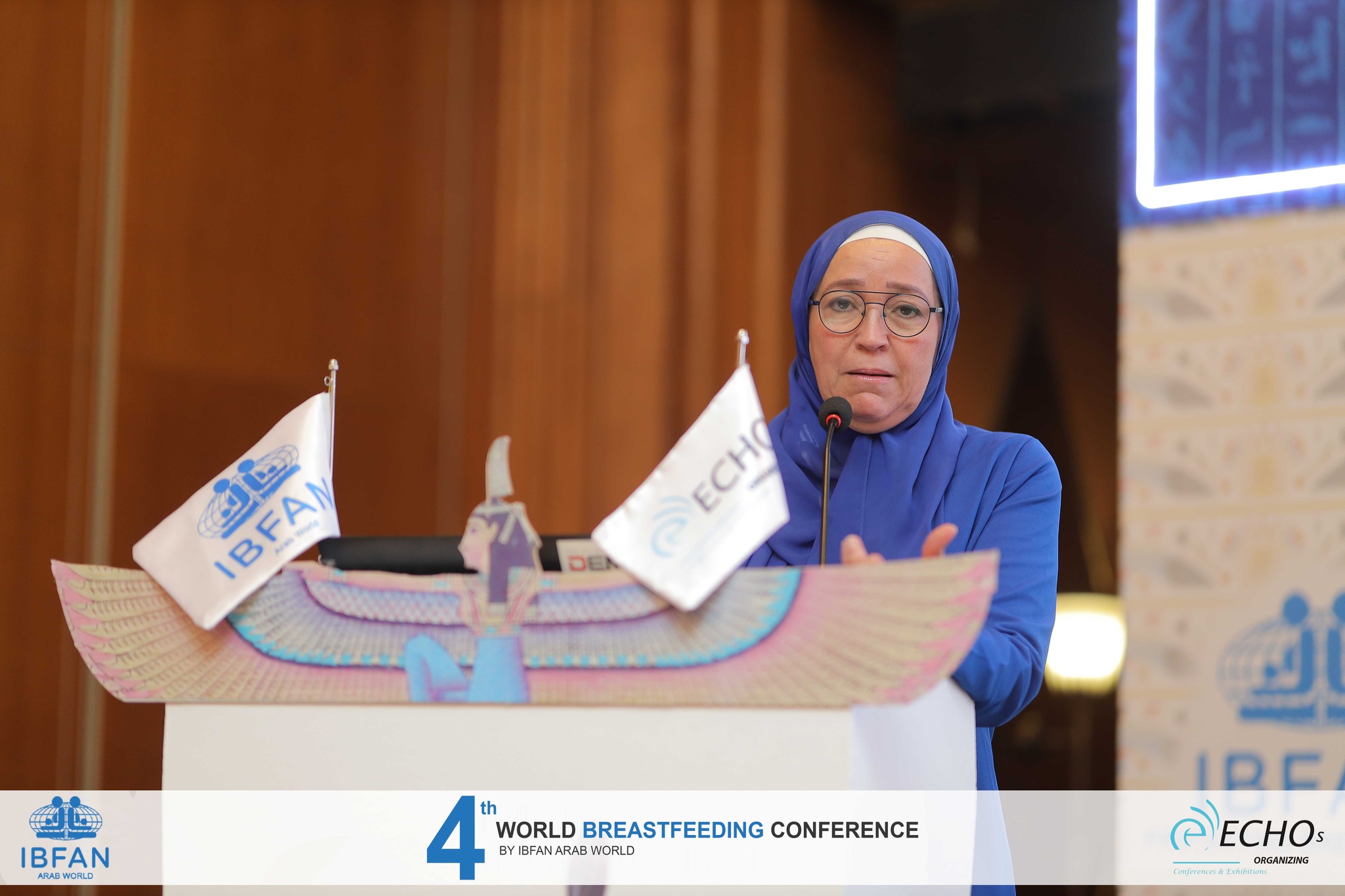
Dr Ghada Sayed
IBFAN Arab World Regional Coordinator
Dr Tedros Adhanom Ghebreyesus (WHO)
Dra Vandana Shiva
IBFAN’s 4th World Breastfeeding Conference
Call to Action
Cairo, Egypt, 12th -14th March 2023
IBFAN’s Fourth World Breastfeeding Conference (WBC4) took place in the immediate aftermath of the biggest pandemic humanity has faced in the last hundred years and at a time when the planet faces a severe climate crisis which, together with increasing pollution, is causing the extinction of thousands of plant and animal species and threatens the very continuity of the human species.
In this context, the same economic interests causing the environmental catastrophe are also encouraging the proliferation of predatory food systems that deepen social inequalities. These food systems also encourage the unhealthy lifestyles that are causing a serious epidemic of obesity and chronic diseases.
As if this were not enough, WBC4 took place at a time when wars have multiplied across the globe, leading to an intensification of global political-military tensions with the looming shadow of nuclear confrontation reappearing.
Addressing these threats from the perspective of children and their families, WBC4 highlighted the unique value of breastfeeding as a resource for analyzing, preventing, counteracting and mitigating many of the effects of the crisis facing humanity. WBC4 acknowledged the enormous contribution that breastfeeding women make to their children, to the planet and to peace. As a renewable, resilient practice that provides food, care and immune support and prevents malnutrition in all its forms, breastfeeding also contributes to the early prevention of violence and the development of more environmentally friendly attitudes, behaviors and consumption.
WBC4 gave 450 participants from 30 countries the opportunity to meet and hear 78 speakers with deep experience and knowledge in these matters, gain valuable clues, information and even tools for action for the particularly critical times in which we live.
The Cairo Breastfeeding – Call to Action
We, the participants of the Fourth World Breastfeeding Conference held in Cairo from 12-14 March 2023, value the opportunity to learn from each other and understand the challenges and opportunities to protect, promote and support breastfeeding in Islamic countries and in all countries of the world.
At a time when poverty rates, economic disparity, conflict, refugee crises and hunger are on the rise, we call on all our partners to act on the following actions with us:
1. Effectively monitor early feeding environments forviolations of the International Code of Marketing of Breastmilk Substitutes and WHA Resolutions or national legislation if stronger. End all exploitative marketing of feeding products for infants and young children, including cross-promotion and new forms of digital marketing and surveillance, advocating the adoption of new WHA Resolutions to close any loopholes.
2. Strengthen coverage of the Baby Friendly Hospital Initiative (BFHI) Ten-Steps, in all maternity services to increase breastfeeding rates, prioritizing the education and skills development of health professionals on breastfeeding protection, promotion and support.
3. Adopt legal frameworks to end all commercial processing and trade of breastmilk, while prioritizing the expansion of publicly funded and managed human milk banking networks. Formulate a unified guideline on Human Milk Donation Systems and regulations covering adoptive infants, including, for Islamic Countries, Islamic norms.
4. Governments, international agencies and public interest organizations should assess and monitor gaps in breastfeeding protection, promotion and support policies and programs using the Global Breastfeeding Trends Initiative (WBTi) tools every five years and initiate action on the gaps thus found.
5. With the increasing threat of natural disasters and other emergencies, preparedness plans must protect and prioritize breastfeeding and culturally appropriate, minimally processed complementary food, avoiding simplistic humanitarian appeals that promote commercial products, especially ultra-processed ones.
6. End the commercialization of complementary feeding away from family foods, prioritizing exclusive breastfeeding for the first 6 months and continued breastfeeding thereafter as the first food security for infants and young children, essential for the realization of healthy and sustainable first feeding systems.
7. Ban corporate donations of baby food products and ensure that emergency situations follow UN Guidelines and are monitored. Public funding should be directed to capacity building, relactation and breastfeeding support.
9. Address the high rates of caesarean sections in maternity services and provide skilled, skinto-skin support and early initiation of breastfeeding, avoiding the over-medication of the perinatal time that negatively affects breastfeeding.
10. All countries to implement the ILO Convention C183 and ensure legal frameworks protect maternity rights, including paid maternity leave in formal and informal employment. ILO to include maternity rights and access to maternity and parental leave in all relevant and forthcoming conventions and recommendations, for example on quality apprenticeship.
11. Health workers and their associations must respect the International Code and subsequent relevant WHA Resolutions and reject any sponsorship by the baby food, bottle and breast pump industries.
12. Governments and UN agencies should adopt rigorous and effective conflict of interest and transparency safeguards to end harmful lobbying by the baby feeding products industry, and ensure that infant and young child feeding policies, food safety regulations and monitoring systems are free from commercial influence.
13. Promote violence prevention actions from birth, with breastfeeding as the backbone of actions to stimulate the development of empathy and compassion.
Below, check out our photo gallery taken during the three days of the event.
Credits: ECHOS Organizing

